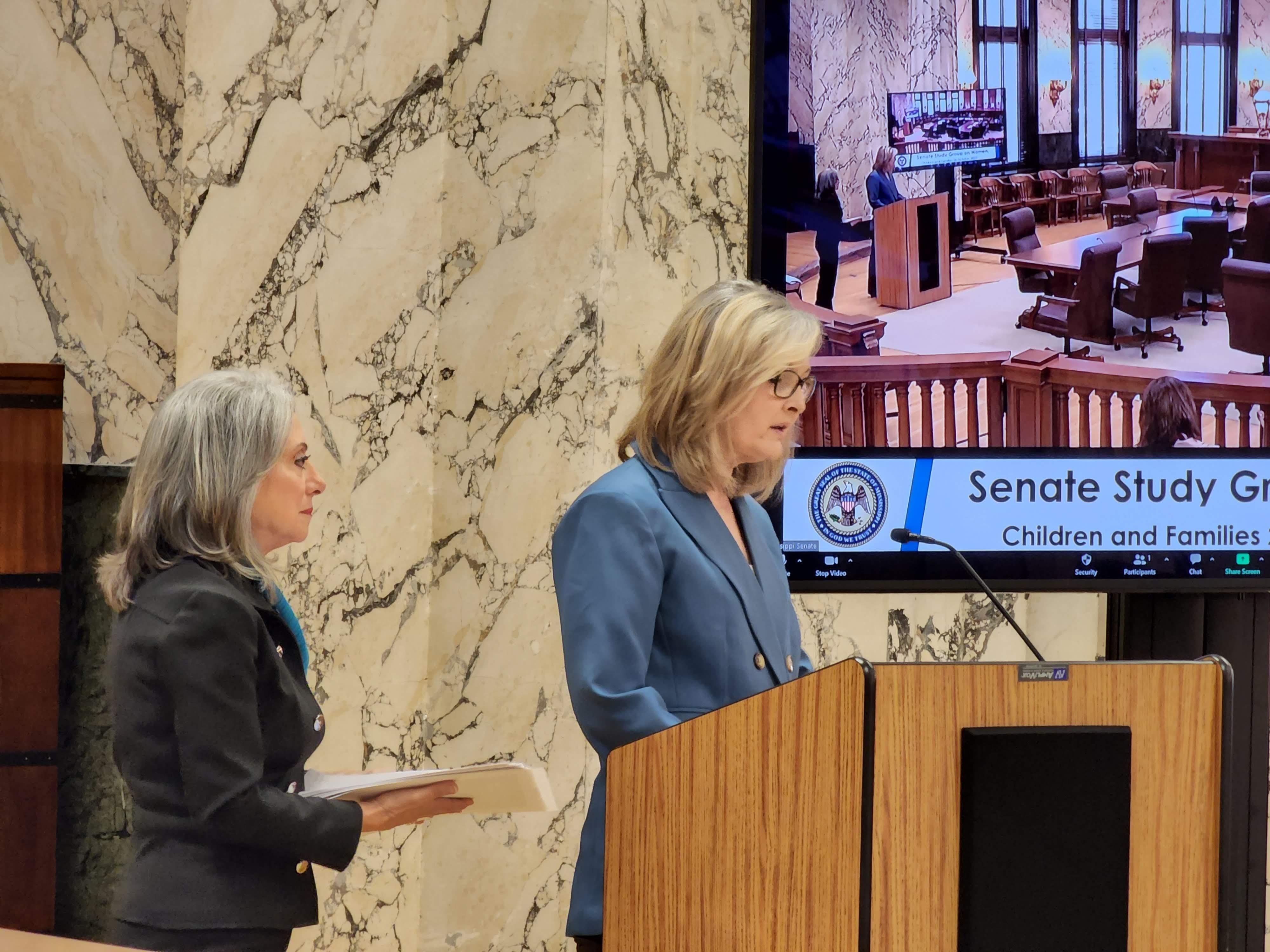Early childhood interventions are key in identifying developmental issues children may face during the first three years of their life. While there are healthcare programs available in the state, Dr. Susan Buttross with Mississippi Thrive says only a fraction of qualifying children is able to receive this care. She shared her concerns during a senate hearing on Women, Children and Families.
“There’s not enough services, there’s not enough service providers, and there’s not enough money that’s going into the state,” says Dr. Buttross. “I am very heartened we are having these hearings that are led by Senator Boyd that are allowing us to put these difficulties out there and to talk about ways to solve these problems.”
According to research by Mississippi State University, 1,592 children in Mississippi receive early childcare health services, but the state needs to serve an estimated 10,000 qualifying children.
Senator Nicole Boyd chairs the Senate Study Group, and says early interventions helped her special needs son live a healthier life with the hope of joining the workforce someday.
Senator Boyd says “The economic impact of us not providing everything from appropriate care after the mother has a child to early intervention is substantial. And so to spend these dollars efficaciously, we’ve got to invest in those preventative programs.”
Senator Boyd says the topics brought up during the ongoing series of hearings will help inform the senate’s policy priorities for the upcoming legislative session.




